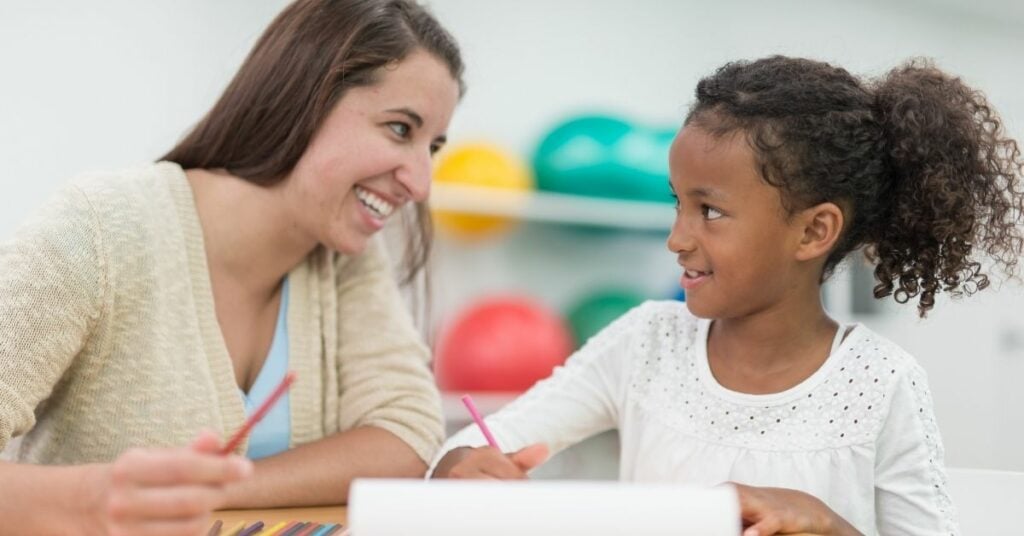Child life specialists: What they do and how they can help
Reviewed by Brooks Baer, LCPC, CMHP

A child life specialist is a certified, trained professional who helps children and their families cope and adjust in a hospital or other pediatric care setting. They usually work as part of a hospital’s child life department (sometimes called a “child life program” or “child life services”), but specialists sometimes also work in nontraditional settings like dental practices, hospice programs, or camps for chronically ill kids.


A major goal of child life programs is to prevent kids from being traumatized in health care settings. Hospitals can be stressful and frightening, even for adults. Part of a child life specialist’s job is to view a situation through a child’s eyes and figure out ways to help kids feel safe.
While they aren’t therapists, doctors, or nurses, child life specialists can help reduce the stress of a child’s medical experience. According to the American Academy of Pediatrics, patients who work with a child life specialist tend to spend less time on narcotics, go home earlier, and have fewer symptoms of anxiety, fear, and posttraumatic stress.1
What do child life specialists do?
Child life specialists use play, conversation, and relationship-building to:
- Prepare kids for procedures
- Promote children’s development and protect kids’ mental health
- Educate kids and families about health conditions
- Help families develop therapeutic relationships
- Teach children strategies for managing stress, pain, or anxiety
- Help kids express and cope with their feelings
Preventing trauma and protecting mental health
A child life program’s main goal is to prevent or reduce trauma in children. Trauma—an emotional response to an overwhelmingly stressful or dangerous circumstance—can occur at any stage of life, including childhood. As adults, survivors of childhood trauma often have higher rates of anxiety, depression, and other mental health concerns.2
For children and their families, the stresses of injury, illness, and treatment can be traumatic. Child life specialists are trained to help kids and families cope with experiences including:
- Chronic, acute, or terminal illness
- Disability
- New medical experiences
- Recovery from a major procedure
- Grief and loss
- A family member’s illness or injury
- Returning to school after medical care
- Recovery from a suicide attempt
Child life specialists are also trained to help kids with preexisting mental health conditions. In those situations, they work to prevent current stressors, such as hospitalization, from making a child’s symptoms worse.
Helping children prepare
A child life specialist can explain medical procedures in ways kids can understand easily. For example, they may give a child a toy syringe to play with to help reduce fear when a real syringe is used later.
When the child isn’t the patient—for instance, if they’re visiting a relative immediately after an injury or surgery—the specialist can spend time with them in the waiting room and explain what they’re about to see. They might go over what machines they can expect in the room and talk about what each one does. Even a few minutes of preparation can help make a child’s experience less stressful.
Promoting child development through play
Play is a critical part of child development, and it can help children understand and engage with the world. When children are in the hospital for a long time, play can be difficult to prioritize. A child life specialist uses play to ensure that children get opportunities to be kids instead of just patients. They may also use play to help children understand medical realities in accessible, age-appropriate ways.
Supporting families
Child life specialists can help families as well. Sometimes this means working with siblings of patients, and other times it means helping families grieve a pregnancy loss or preparing a child for the death of a family member. Regardless of the need, specialists can advocate for kids and their families in a variety of circumstances.
Helping children grieve
Like trauma, grief can happen to someone at any age. However, children often express grief differently than adults do. Younger kids may not be able to fully express their feelings or experiences yet, and older kids may struggle to access and make sense of their grief.
Child life specialists can help children who may be grieving over:
- Losing a sense of “normal life”
- Not feeling like a kid anymore
- Receiving a new diagnosis
- Losing touch with friends
- Falling behind in school
- Missing out on extracurricular activities
- Watching family members struggle or grieve
- Relapsing
- Experiencing the loss of a loved one
Complementary types of therapy
Therapies that can complement child life services before, during, and after stressful situations include:
- Play therapy
- Art therapy
- Animal-assisted therapy
- Music therapy
Find help today
If your child is struggling, a therapist can help. Browse our directory to find a licensed mental health professional near you.
If you or your child are in crisis, call or text the free, confidential 988 Crisis Lifeline at 988. It’s available 24 hours a day, seven days a week.

Sources
About the author
The editorial team at therapist.com works with the world’s leading clinical experts to bring you accessible, insightful information about mental health topics and trends.
Related articles

Zoom fatigue: How to keep children and teens engaged in online therapy
Doing therapy online has become the new normal, but it presents unique...

Taking our anxiety back to school
Heading back to school feels much heavier than it used to. Follow this...

Initiation and activation: 2 exercises to help kids focus
Many students struggle to get started on tasks because they simply don't know...

Play therapy: Types and techniques
Play therapy helps children express themselves and solve problems while in a...
